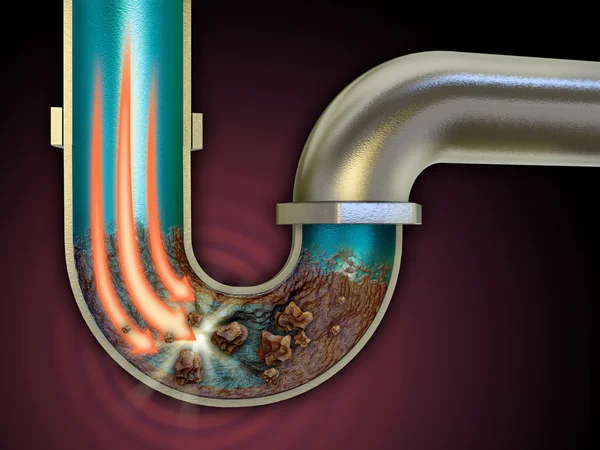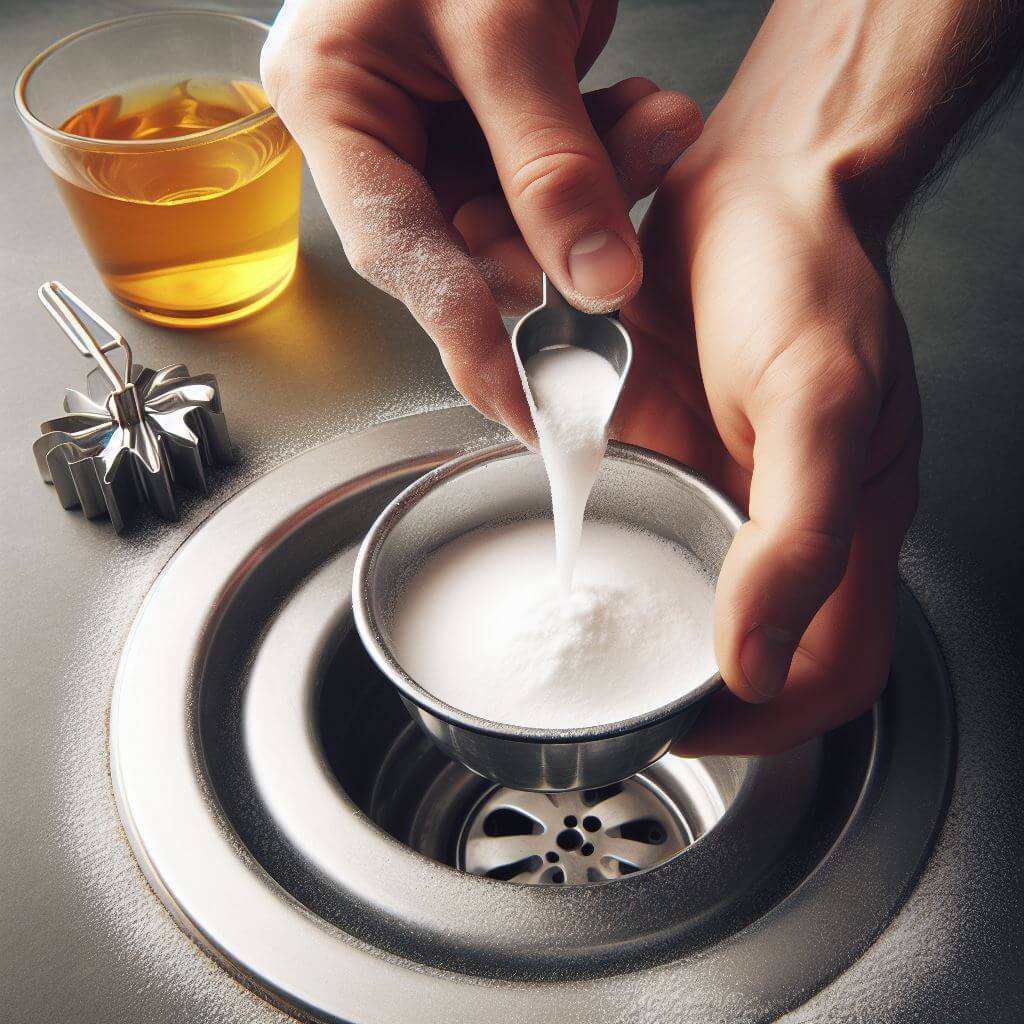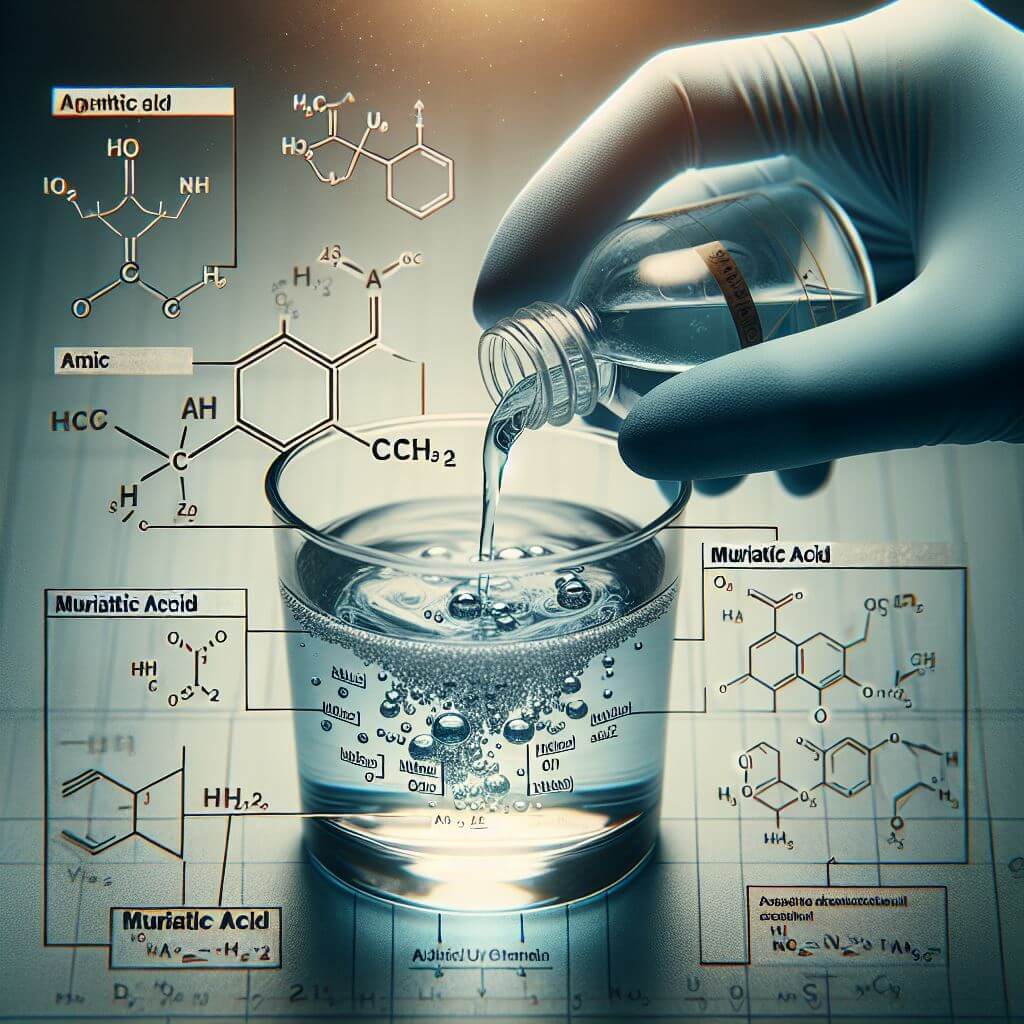- Home
- How to Dispose of Household Hazardous Waste
- Can You Put Muriatic Acid Down the Drain
can you put muriatic acid down the drain-
The Danger Lurking in Your Drain Cleaner And What You Need to Know
Dealing with a clogged drain can be both frustrating and time-consuming. Some homeowners may consider using muriatic acid as a last resort solution to their drainage woes, but is it safe? In this blog post, we explore the potential risks and hazards involved in pouring muriatic acid down your drains, discuss safer alternatives for unclogging your pipes, and provide tips on proper disposal of hazardous chemicals like muriatic acid.
Understanding Muriatic Acid
Muriatic acid, also known as hydrochloric acid, is a powerful and highly corrosive chemical commonly used for a variety of purposes in different industries. It can be found in solutions for cleaning masonry surfaces, removing rust from metals, adjusting the pH of swimming pools, and even refining certain ores in metallurgical processes.
However, using muriatic acid as a drain cleaner comes with significant risks and hazards that cannot be overlooked. This heavy-duty chemical can cause severe damage to your plumbing system if not handled properly or applied correctly.
PVC pipes are particularly vulnerable to its effects; ABS pipe damage may also occur when exposed to undiluted or improperly diluted solutions.
When working with muriatic acid at any concentration level – especially during DIY projects like toilet cleaning – personal protective gear is crucial. Acid-resistant gloves should always be worn along with respiratory protection such as respirators specifically designed for dealing with noxious fumes emitted by this toxic compound.
More on the best uses of muriatic acid
What happens if you put too much muriatic acid in pool?
Risks And Hazards Of Pouring Muriatic Acid Down The Drain

Pouring muriatic acid down the drain can cause damage to plumbing systems, harm the environment, and pose health and safety risks; read on to learn more about why it's best to avoid this hazardous chemical.
Damage To Plumbing Systems And Fixtures
Pouring muriatic acid down the drain can cause serious damage to your plumbing system and fixtures. Muriatic acid is highly corrosive and can eat away at pipes, causing holes, fractures or even complete breakage.
If you have PVC pipes in your drainage system, it's essential not to use muriatic acid since this type of pipe cannot withstand its corrosive chemicals. ABS pipes, on the other hand, may be more durable but still pose a risk when exposed to excessive amounts of muriatic acid.
In summary, it's essential always to consider the potential risks before pouring anything hazardous-like muriatic acid-down the drain as a last resort for cleaning stubborn clogs.
Environmental Impact
Muriatic acid is harmful to the environment and should not be poured down the drain. When muriatic acid meets water, it produces hydrogen chloride gas, which can cause eye irritation, coughing, and difficulty breathing.
This gas also contributes to smog formation and air pollution. Additionally, dumping muriatic acid in drains can harm aquatic life once it reaches water bodies.
As responsible citizens, we must always consider the environmental impact of our actions when using hazardous chemicals like muriatic acid. Instead of pouring it down the drain or disposing of it carelessly, we have a responsibility to neutralize and dispose of this corrosive agent safely following local government regulations on toxic waste management.
In conclusion, understanding the environmental impact of household chemicals such as muriatic acid is crucial to making informed decisions that promote human health while protecting the planet's ecology at large.
Health And Safety Risks
Muriatic acid poses various health and safety risks when poured down the drain. The fumes from the acid can irritate your nasal passages, throat, and lungs, leading to respiratory problems.
Inhaling these fumes can also cause chemical burns in your respiratory system.
Moreover, if you accidentally mix muriatic acid with other cleaning agents such as bleach or ammonia-based cleaners commonly used in households, a dangerous reaction may occur that releases toxic gases harmful to human life.
Therefore, it's important to take necessary precautions before using any hazardous chemicals for cleaning purposes.
Safe Disposal Of Muriatic Acid
To ensure safe and responsible disposal of muriatic acid, it is important to follow proper guidelines such as wearing protective gear, neutralizing the acid before disposal, and adhering to local government regulations.
Protective Measures
Protective measures are crucial when working with muriatic acid to ensure safety and avoid accidents. Here are some essential steps to take when using muriatic acid:
1. Wear Personal Protective Gear: Always wear protective clothing, such as gloves, goggles or safety glasses, and a respirator mask, to protect yourself from acid splashes, fumes, and inhalation.
2. Dilute the Acid: To reduce the risk of damage to pipes and plumbing fixtures, dilute the acid before use.
3. Use in a Well-Ventilated Area: Ensure that there is proper ventilation in the room where you will be working with muriatic acid.
4. Keep Children and Pets Away: Keep children and pets at a safe distance from the area where you are handling muriatic acid.
5. Handle with Care: Muriatic acid should be handled with care at all times to prevent spills or accidents.
6. Neutralize Spills Immediately: In case of a spill, neutralize it immediately using milk of magnesia or baking soda solution.
By following these protective measures, you can work safely with muriatic acid and minimize the risk of accidents or damage to your plumbing system.
Neutralization Process
Muriatic acid is a hazardous chemical that needs to be neutralized before disposal. Follow these steps to safely neutralize muriatic acid:
1. Wear protective gear such as acid-resistant gloves and a respirator.
2. Pour the muriatic acid into a large container of water while stirring constantly.
3. Slowly add baking soda or another alkaline substance to the mixture until it stops fizzing, indicating that the acidity has been neutralized.
4. Let the mixture sit for several hours or overnight.
5. Test the pH level with litmus paper to ensure that it is no longer acidic before disposing of it according to local government regulations.
It's important to note that without proper neutralization, muriatic acid can cause serious harm to people and the environment if not disposed of properly. As with any household chemical, always read and follow label instructions carefully and take necessary safety precautions.
Disposal Guidelines
Once you have used muriatic acid to unclog a drain, it must be disposed of safely. Here are the proper disposal guidelines:
1. Dilute the remaining acid with water. Use a 10:1 ratio of water to acid.
2. Pour the diluted solution into an old plastic container with a tight-fitting lid.
3. Label the container with "DANGER: CORROSIVE" and "MURIATIC ACID" and store in a secure and ventilated area.
4. Contact your local hazardous waste facility or municipal government about how to dispose of muriatic acid properly.
5. Never pour muriatic acid down any drain or sewer system, storm drains, or onto the ground.
By following these disposal guidelines, you can prevent harm to yourself and others, along with protecting the environment from dangerous chemicals. It is always better to opt for safer alternatives when it comes to unclogging drains, such as natural DIY methods or hiring professionals who use safer products that won't cause damage to your plumbing or septic system.
Local Government Regulations
It's essential to know your local government regulations before disposing of hazardous chemicals like muriatic acid. Some cities and states have guidelines on how to handle these substances safely, while others may prohibit homeowners from disposing of them in the trash or down the drain.
For example, California state law requires individuals who generate hazardous waste materials at home to take them to a certified household hazardous waste facility for disposal.
It's critical to follow these regulations because improper disposal can lead to environmental pollution and harm human health. Accidentally pouring muriatic acid into storm drains or sewers can contaminate water sources and endanger aquatic life.
Alternatives To Muriatic Acid For Drain Cleaning
Instead of using muriatic acid, there are several safer and more environmentally-friendly drain cleaning options available, such as the baking soda and vinegar method, boiling water, enzyme cleaners, commercial cleaners or other acidic substances.
Baking Soda And Vinegar Method
If you're looking for a natural and effective drain cleaning solution, the baking soda and vinegar method is a great alternative to muriatic acid. Here's how to use this method:
1. Pour a pot of boiling water down the drain to help loosen any debris.
2. Add half a cup of baking soda into the drain.
3. Pour one cup of vinegar down the drain and cover it immediately with a plug or cloth to keep the fizzing reaction contained.
4. Wait for about 30 minutes, then pour another pot of boiling water down the drain to flush away any remaining residue.
This method is safe for all types of pipes and won't harm your septic system or the environment. Baking soda helps neutralize odors and break up grease, while vinegar's acidity dissolves mineral buildup and helps loosen blockages. Additionally, it's a cost-effective solution that doesn't require harsh chemicals or special gear to use.
Remember that prevention is key when it comes to maintaining your drains. Avoid pouring grease, oils, or other substances down the sink that can accumulate over time and clog your pipes. Regular maintenance like flushing hot water down your drains once a week can also help keep them clean and prevent blockages from forming.
By using alternatives like the baking soda and vinegar method, you can effectively unclog your drains without exposing yourself to hazardous chemicals or harming your plumbing system, septic tank, or the environment.
Boiling Water
A simple and effective way to unclog a drain is by pouring boiling water down it. The heat from the water can melt and wash away any greasy substances or buildup that may be causing a blockage.
Additionally, using boiling water to unclog drains can have its limitations depending on your pipes’ material. PVC pipes are generally fine with hot water, but older homes with metal piping could suffer damage from high temperatures causing them to warp or burst.
Enzyme Drain Cleaners
Enzyme drain cleaners are an excellent alternative to harsh chemicals like muriatic acid. They work by breaking down organic materials that clog drains, such as hair, grease, and soap scum.
Enzyme drain cleaners can take a bit longer to work than chemical alternatives but are much safer to use. Simply pour the enzyme cleaner down your slow-draining sink or shower and let it sit overnight.
Come morning; you should notice a significant improvement in water flow without risking damage to your plumbing system or septic tank.
Commercial Cleaners
Commercial drain cleaners are widely available and can be very effective in removing stubborn blockages. These products contain a mix of chemicals that work together to dissolve organic matter and break up clogs, making them easy to flush away.
However, these cleaners can also be harsh and dangerous if not used properly. They often contain corrosive substances that can damage pipes, harm the environment, or pose health risks when mishandled.
It's essential to follow the product instructions carefully, wear protective gear such as gloves and goggles when handling these chemicals, and avoid mixing different types of cleaners as this can cause chemical reactions leading to serious harm or even explosions.
Safer And More Environmentally-Friendly Products
There are many alternatives to using harsh chemicals like muriatic acid for cleaning drains that are both safer and more environmentally-friendly. For instance, baking soda and vinegar can work wonders in unclogging a drain without the need for any harmful chemicals.
Another alternative is enzyme drain cleaners which utilize natural bacteria to break down clogs.
If you prefer commercial cleaners over DIY solutions, consider choosing brands that use eco-friendlier ingredients like hydrogen peroxide or plant-based surfactants.
What acid do plumbers use to unclog drains?
When it comes to unclogging drains, plumbers typically use a variety of acids besides muriatic acid. One popular alternative is sulfuric acid, which is known for its simplicity and ability to clear a drain within an hour. However, if the clog is particularly strong, it may take longer for sulfuric acid to work. Additionally, plumbers may choose other acids based on the type of clog and the material of the piping.
For example, hydrochloric acid is commonly used because it is safe to use with plastic piping. While these acids are effective in breaking down clogs and restoring proper water flow, it is important to handle them with caution and follow proper safety protocols. As a plumber, you must carefully evaluate the situation and choose the appropriate acid for the job at hand.
can you put muriatic acid down the drain- summary
Pouring muriatic acid down the drain is not recommended due to its hazardous nature. Not only can it damage your plumbing and fixtures, but it also poses health and safety risks while causing environmental harm.
There are safer alternatives you can use for unclogging drains, such as baking soda and vinegar or enzyme cleaners.
If you're unsure how to handle a plumbing emergency or need help with professional drain cleaning, don't hesitate to call a licensed plumber who knows how to safely work with different types of acids without endangering anyone or anything around them.


